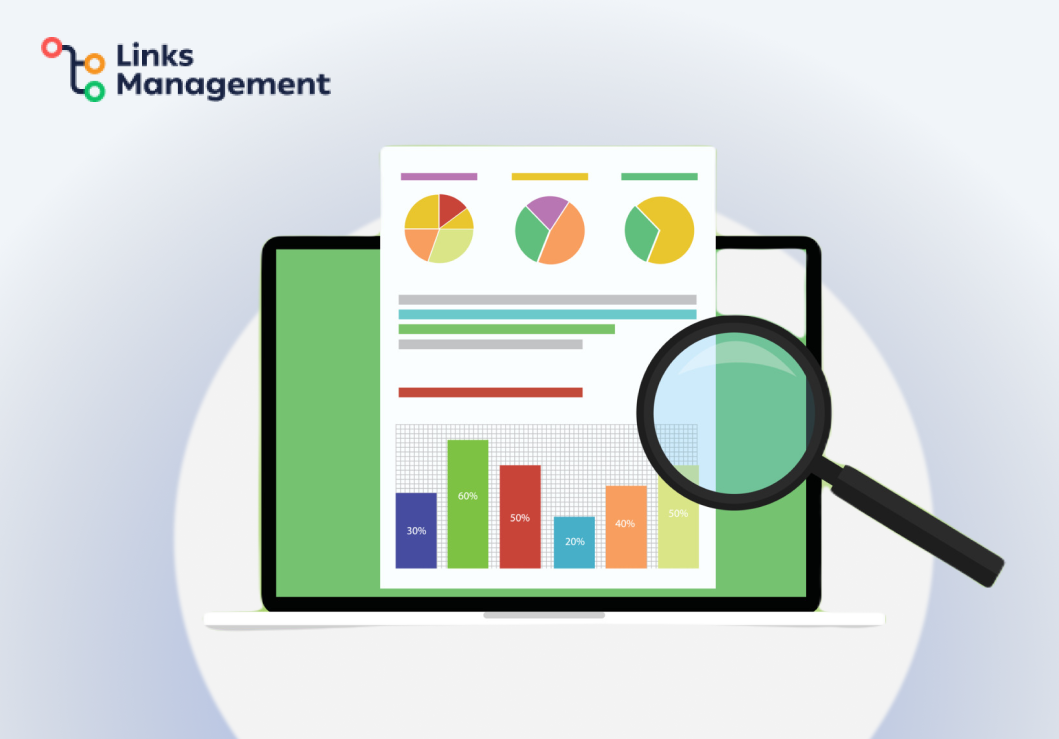How to Do a PPC Audit in 10 Steps
Feeling overwhelmed at the thought of conducting a PPC audit? You may wonder what it entails and where to begin. Not to worry! Our 10-step guide will provide an efficient and comprehensive analysis of your account, enabling you to finish with ease.

With this helpful resource readily available, we will provide guidance on the techniques and methods that simplify analyzing data – let’s begin!
Step 1: Define Your Goals
If you’re planning to improve your PPC strategy or search campaigns, a PPC audit could be beneficial. However, before starting, it’s essential to understand your goals clearly. Defining your objectives will not only help you focus your audit efforts but also ensure effective measurement of success.
Whether you’re performing a comprehensive PPC account audit or utilizing a PPC audit checklist to assess particular areas, keeping your objectives in mind will assist you in staying on track and achieving the most ROI. Therefore, before commencing your audit, take a moment to reflect on what you hope to accomplish with your PPC campaigns.
Step 2: Collect Data
To perform a PPC audit successfully, it’s crucial to collect data and ensure all aspects of your paid search are accounted for. A comprehensive data analysis is the cornerstone of a successful PPC audit. Analyze various data sources like Google Ads, Bing Ads, and Google Analytics, along with other relevant platforms. This will help you identify areas for improvement such as reducing wasted ad spend and identifying underperforming campaigns.

Assembling this data can be daunting, but with effective organization and exporting techniques, you can streamline the process and enhance the precision of your PPC audit checklist.
To summarize, gathering accurate data sources is essential for a prosperous PPC account audit and should not be disregarded.
Step 3: Review Campaign Structure
To conduct a PPC audit effectively, it’s essential to review the campaign structure thoroughly. This step is critical to the overall process because it can have a significant impact on the account’s performance. By examining the campaign hierarchy, ad groups, and keyword organization, you can ensure that the campaigns are appropriately structured according to the intended objectives.
The structure of your PPC campaign can greatly impact the outcome of your account audit. Therefore, it’s crucial to focus on this step. Aligning your campaign structure with targeted keywords can provide several advantages, such as enhanced ad relevance, higher quality scores, and better ad placements. Ultimately, your goal should be to optimize your campaign structure to maximize overall performance.
Step 4: Keyword Analysis
Start by identifying your best-performing keywords and determining what factors contribute to their success. Analyze trends in word choice, demographics, and search intent to gain valuable insights. Simultaneously, pinpoint underperforming keywords and determine the reasons why they’re not delivering the desired outcomes. This process can enable you to polish your ad copy and targeting to eliminate wasteful spending.
Additionally, make sure to consider negative keywords in your analysis. It is important to filter out irrelevant search terms and ensure your ads are only shown to interested users. Continuously analyze and streamline your list of negative keywords for optimal performance as you refine your PPC audit template. Keep in mind that a free PPC audit has its limitations and it is up to you to use the appropriate PPC audit programs and tools to optimize your ad campaigns.
Step 5: Ad Copy Evaluation
Ad copy is crucial for any successful PPC campaign. Its primary goal is to encourage potential customers to click on your ad and convert to paying customers. Therefore, it’s vital to evaluate its relevance, clarity, and call-to-action effectiveness during the fifth step of your PPC audit. This stage involves a thorough assessment of all ad copies in your campaigns. To assess the effectiveness of ad copies, it is essential to gauge their relevance to your target audience. Additionally, it is crucial to evaluate the clarity of the message, tone of voice, and the efficacy of the call-to-action.
A/B testing on ad variations can offer valuable insights into the copy that resonates best with your intended audience. The knowledge gained from this step may aid in producing effective ad copies that substantially augment your ad’s click-through and conversion rates. To conduct a PPC audit, diverse resources are available, including PPC audit templates, programs, or a complimentary PPC audit report, to provide a valuable starting point for your audit.
Step 6: Landing Page Assessment
In the realm of PPC, various factors must be taken into account to guarantee the efficiency and effectiveness of your campaigns. Among the most crucial steps in a PPC audit is evaluating your landing pages. This step carries remarkable weight because your landing pages are pivotal to the success of your PPC endeavors. In order to evaluate your landing pages effectively, it’s necessary to take into account factors such as relevance, page load times, and mobile-friendliness.

Auditing your landing pages can help identify areas for improvement and ensure optimized conversions. Consider best practices such as maintaining consistent and clear messaging, including engaging visuals, and limiting distractions. This process can set your PPC campaigns up for success.
Step 7: Bid Management
Bid management is a critical part of any PPC audit. This entails optimizing bids strategically to boost ad performance and enhance ROI. Utilizing bid modifiers is an effective approach that enables the adjustment of bids for particular audience segments and device types to target valuable users while reducing unnecessary spending.
Additionally, automated bidding strategies are valuable tools that leverage machine learning to adjust bids in real time based on performance data. To optimize your PPC campaigns and maximize your advertising ROI, prioritize your top-performing campaigns when allocating your budget and distribute funds accordingly. Take into account factors like conversion rates, cost per acquisition, and customer lifetime value when making these decisions. To optimize your PPC campaigns and maximize your advertising ROI, prioritize your top-performing campaigns when allocating your budget and distribute funds accordingly. By expertly managing your bids and budget, you can ensure the most effective use of your resources.
Step 8: Quality Score Analysis
Analyzing Quality Scores is an essential step in performing a successful PPC audit. Search engines like Google use Quality Score as a metric to determine the relevance and value of ads. The higher the Quality Score, the more likely the ads are to appear in top positions, and the less they’ll cost per click.

To evaluate Quality Scores, review individual keyword scores on a 1-10 scale. Then, use patterns and trends to guide optimization efforts. Improving Quality Scores can involve focusing on more specific keywords and enhancing ad relevance and landing page experience. It’s important to note that Quality Scores can greatly affect ad rankings and costs, so taking the time to comprehend and improve them can result in better ROI and conversions.
Step 9: Ad Extensions and Formats
Ad extensions and formats are critical to making PPC campaigns succeed. To guarantee optimal performance during a PPC audit, it’s essential to comprehensively analyze these components. Ad extensions assist in improving ad relevance, increasing click-through rates, and enhancing overall user experience. To optimize ad extensions, it’s recommended to use pertinent keywords, high-quality graphics, and straightforward calls-to-action.
Using a range of ad formats like text ads and responsive ads can bolster the user experience and increase the precision of targeting specific audiences. Analyzing and refining ad extensions and formats considerably enhances the return on investment and overall performance of PPC campaigns.
Step 10: Performance Tracking and Reporting
Running a successful PPC campaign requires constant attention to achieve optimal results. Consequently, performance tracking and reporting are pivotal in any PPC audit. By closely monitoring your campaigns, you can gain valuable insights and make data-driven decisions that enhance performance.
To maximize your monitoring efforts, it’s crucial to configure custom reports and alerts within both Google Analytics and your PPC platforms. By monitoring key metrics and promptly identifying issues, you can prevent them from worsening. Consistently reporting to stakeholders is also crucial, as it ensures alignment of goals and strategies, and keeps everyone informed about campaign developments. Continuous monitoring and reporting will allow you to enhance your PPC campaigns for the best possible results.
Conclusion
In digital advertising, it’s crucial to continually enhance and optimize your PPC campaigns. Conduct regular PPC audits to evaluate campaign performance and uncover opportunities for improvement. By using a checklist for PPC audits and the appropriate PPC audit tools, you can make improvements that will enhance your results and ultimately increase your business’s ROI. Act now and start implementing these steps to elevate your PPC efforts.
Enter URL & See What We Can Do Submit the form to get a detailed report, based on the comprehensive seo analysis.